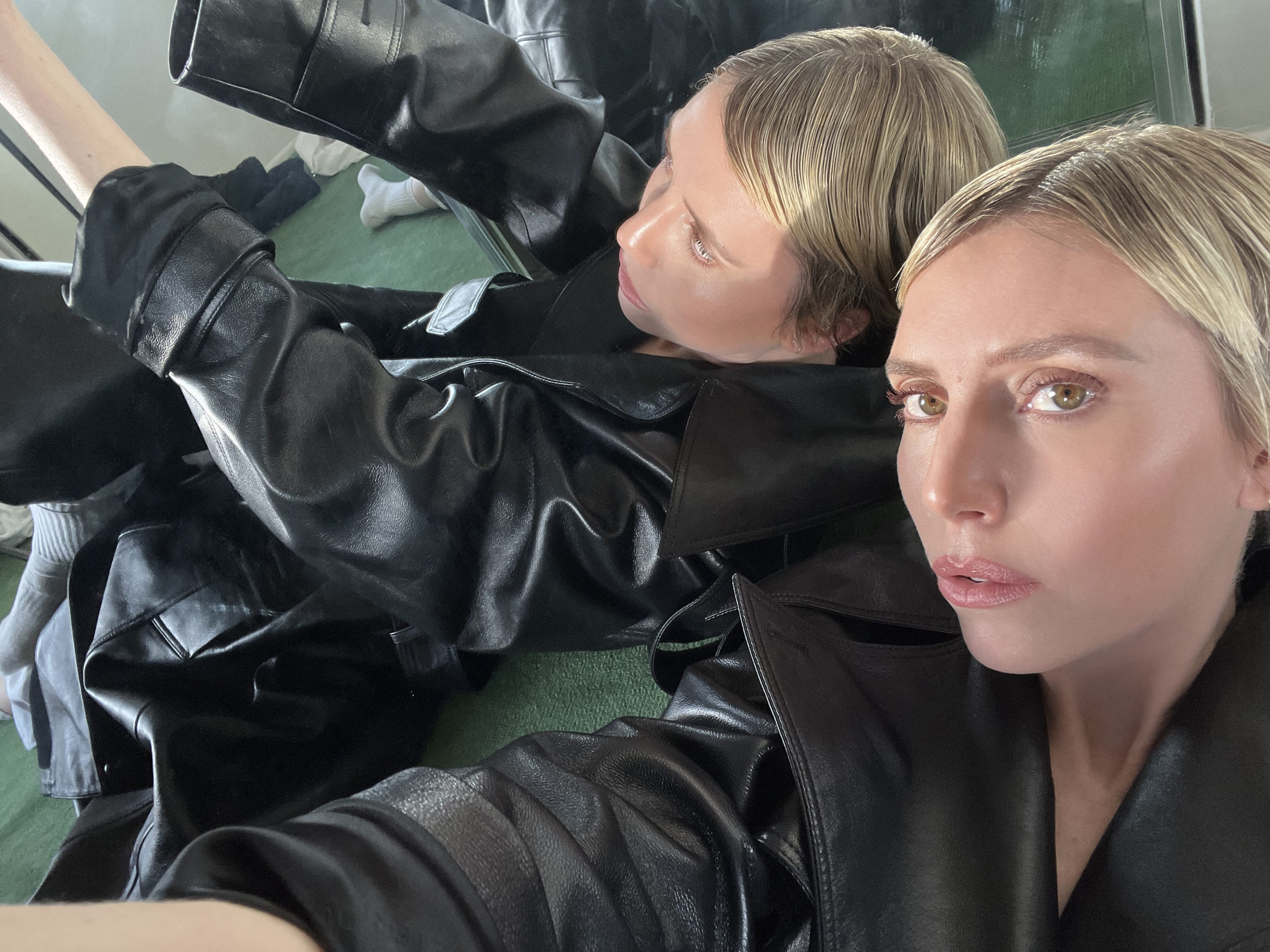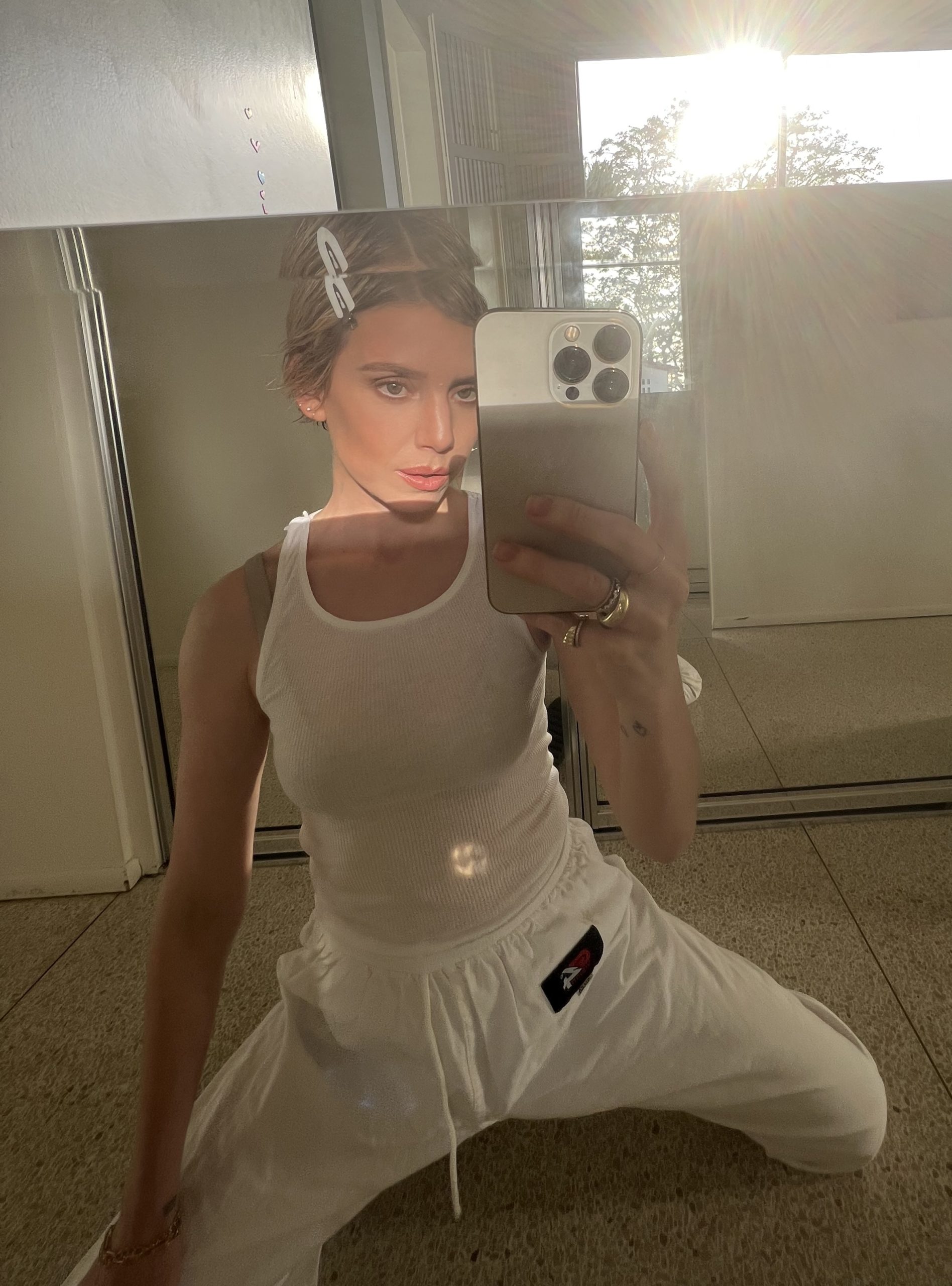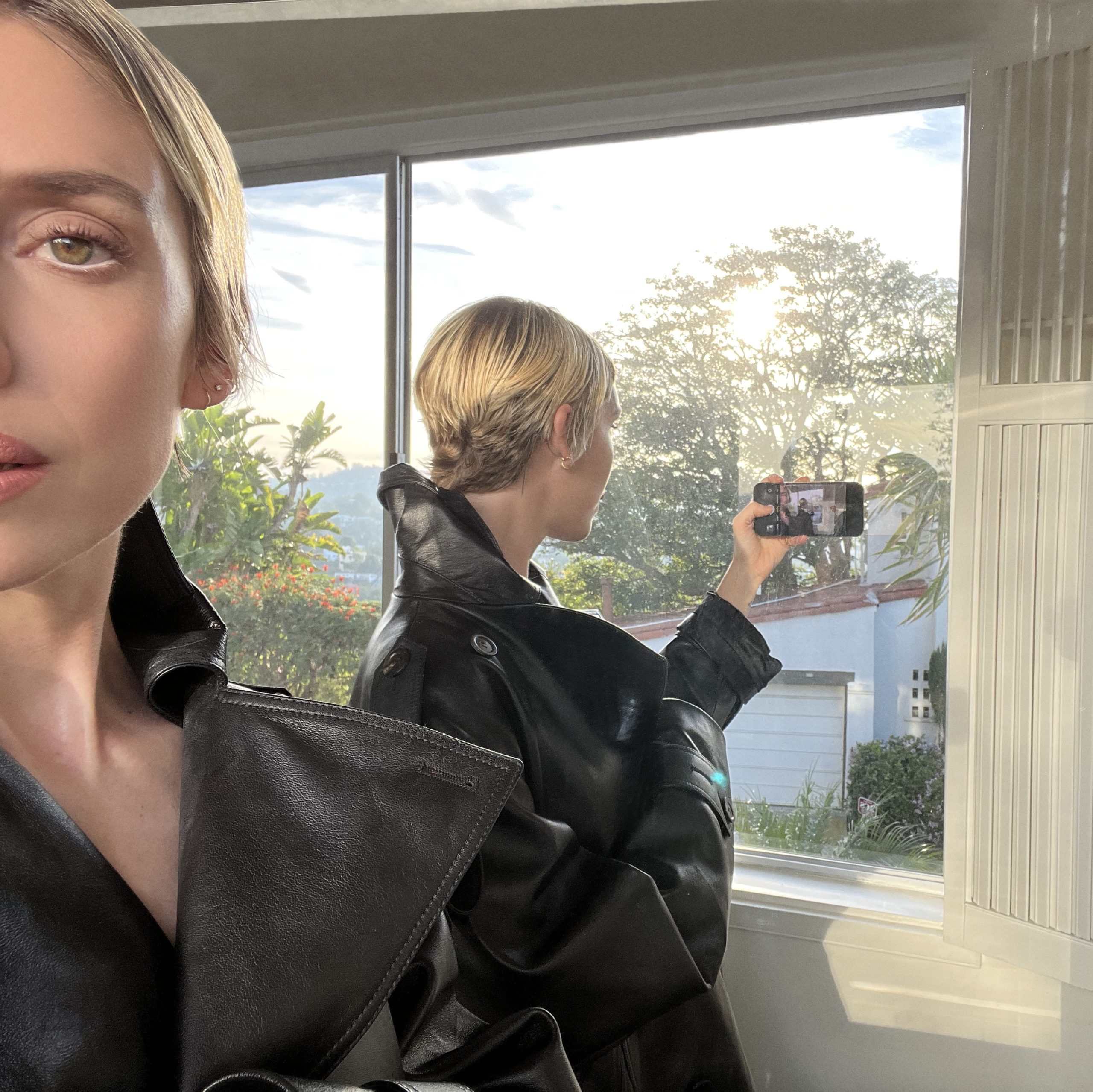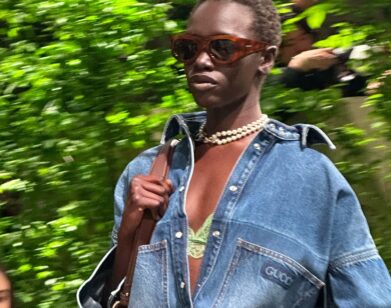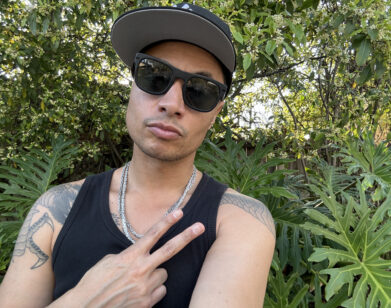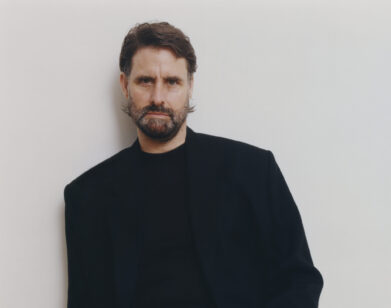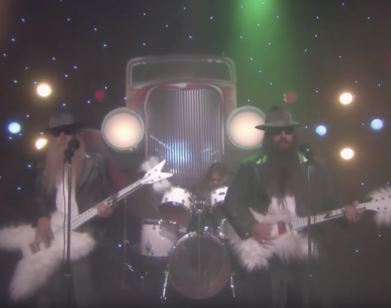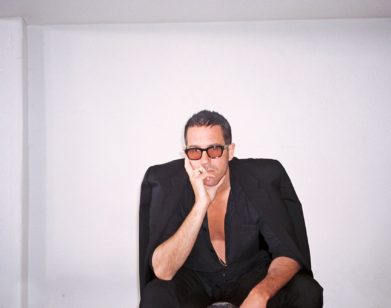IN CONVERSATION
Lykke Li and Mark Ronson on Sad Songs and Psychedelics
Lykke Li has spent the better part of her career exploring matters of the heart. Over five albums—her latest, EYEYE, is out as of last Friday (along with an arresting series of meta visuals)—the Swedish singer-songwriter embraces feelings of desire and rejection with equal lust. This is why Mark Ronson, the nightlife icon and Li’s frequent collaborator, dubbed the 36-year-old artist “the high priestess of heartbreak and sadness.” On the eve of the album’s release, Ronson called Li for a chat about psychedelic revelations, breakups, and coming to terms with your own dance floor bangers. —ERNESTO MACIAS
———
MARK RONSON: How are you doing?
LYKKE LI: I’m good! Thank you for doing this.
RONSON: Of course! I just watched the films, and they’re so extraordinary. I like to joke that you’re the high priestess of heartbreak and sadness, but the films were so gut-wrenchingly moving. They’re incredibly sad, but also super beautiful. Did you do the music or the visuals first, or did they hatch at the same time?
LI: That means so much coming from you. I really wanted to capture my idea of love, and the ways that I always transform it into a fantasy. I usually write about what’s happening in my life, but I was beginning to get confused about which elements reflected reality, and which ones I was creating myself. I spent a lot of time with my friend Theo [Lindquist] trying to create a story out of my real life, but more meta—like a movie within a movie.
RONSON: So you had the songs first, and then you figured out how to transform them into films?
LI: The films are more like when you reflect on a relationship, and there are key scenes that stand out in your memory. I was trying to create something modern, because we live in a time where our experiences are fragmented. We spend so much time on Instagram and TikTok, where you only get snippets of information.
RONSON: This is obviously just my interpretation, but cycles feel like a major theme. The films are circular and you’re not sure where one leaves off and another picks up. Was that the overarching theme for you?
LI: What I realized when I was lying on my floor completely heartbroken and writing this album is that I was stuck in a cycle of my own making. It became almost comical—I was like, “Really? I’m making a fifth album about heartbreak?” Making albums is a cycle in itself. You make the album, you do the videos, and you go on tour, you’re exhausted. I became obsessed with the idea of repetition—everything in nature is cyclical. As I was making this album, I was also doing a lot of psychedelic therapy to alter my own patterns. I became completely obsessed with the loop as a form.
RONSON: I spoke to you when you were just getting started on it, but did you do this whole record with Bjorn?
LI: Yes. That was really beautiful, too.
RONSON: I guess that’s a version of the cycle that feels positive and special. Completing a cycle can offer something beautiful, not just heartbreak.
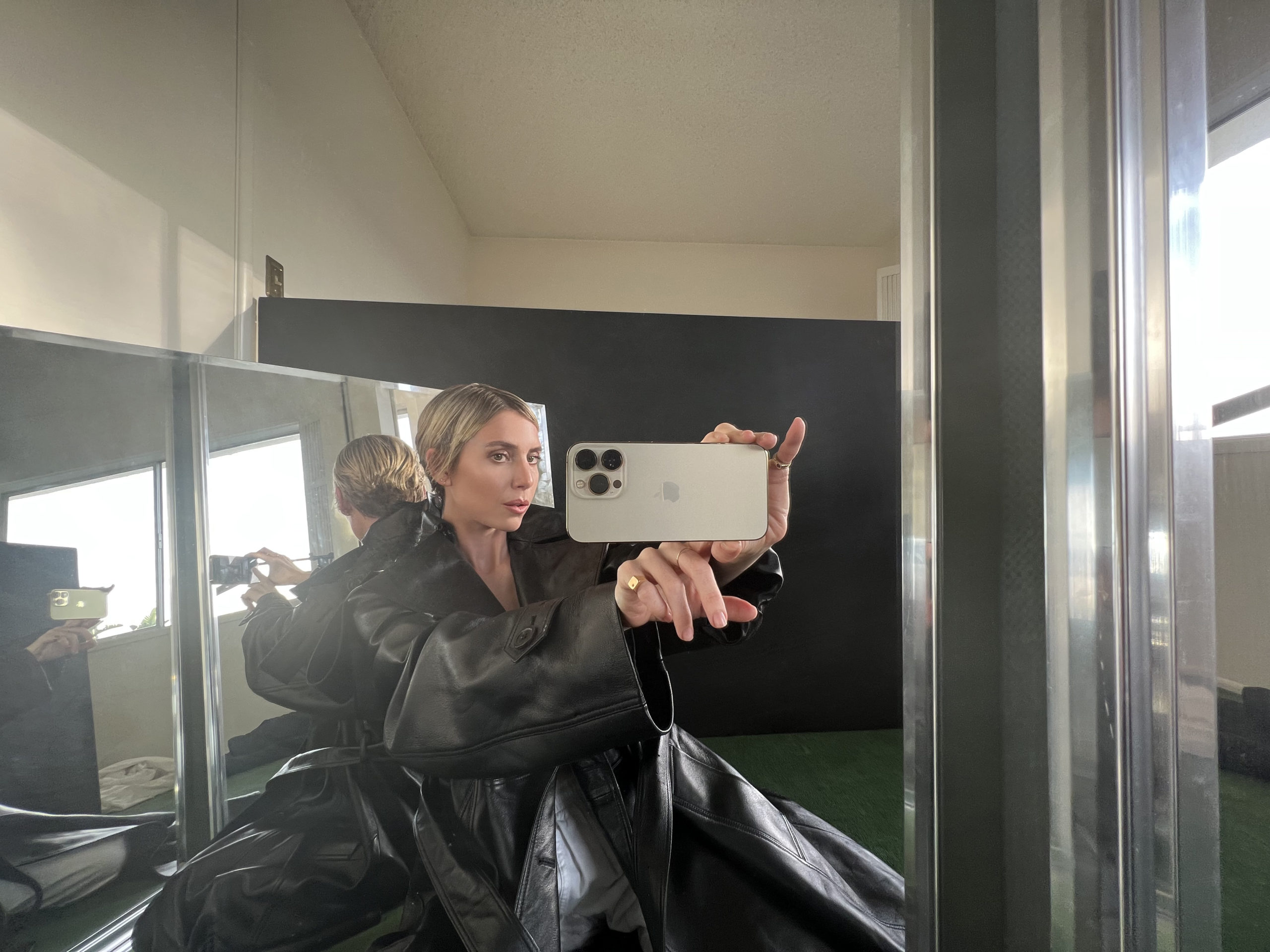
LI: Completely. The album was inspired in part by a day when I lay in my bed listening to old voice memos. I was like, “I want to go back to how I made music when I was 19.” It was very much me, alone in my bedroom, doing eight tracks and my own vocals. Then, I found Bjorn. Coming back to my teenage myself and then coming back to Bjorn was so beautiful. We did it in my living room, just me and him. He had this shitty guitar that was the same one we used when we wrote “Little Bit” and “I Know Places,” and we had a little drum. There were no headphones. It was like getting back to the beginning and making the album that I always wanted to make for myself when I was 19. I also realized that the videos offer a really young view of love. It felt like I finally ended the chapter that began when I was 19, when I worshiped a glamorized TV version of love.
RONSON: Is there a sense that, if you close enough of these circles, you can move forward into something that’s not as tragic as heartbreak?
LI: That’s my hope. That’s why I opened up a lot of instrumental space in the production. It was beautiful to create a soundscape like that. I’m still quite pop in my writing, and quite structured. I’m curious if I could break away from pop now, and start a new landscape completely. Because I was so happy creating melodies, moods, and worlds.
RONSON: The last track on the album is really ballsy. You’ve ended on a seven-minute song where the last four minutes are just sounds. It feels like a really intentional thing, can you explain it?
LI: I wanted to end on a god frequency. I was obsessed with neurology while I was working on the album. The problem with me is when I make albums, I just make them for myself. It felt like such a heavy album—like a big fat pastry of suffering—and I needed time to decompress. Also, I was so interested in the environment leak through at the end, like in a movie. That song is my final scene, alone in the rain, while the credits roll.
RONSON: You’re addressing such heavy emotional subjects in this music. Do you find that dwelling on it pulls you back in, or do you find catharsis in the process?
LI: It’s completely cathartic. With every record, you also discover this new character in yourself who emerges and conquers any pain. I usually cut and color my hair.
RONSON: You definitely extol the virtues of psychedelics as therapy. I fully believe in therapy and I’ve used plenty of psychedelics, but I’ve never really combined the two. Did that bring you healing?
LI: It’s mind-blowing and life-changing, similar to the effects of music. When we are channeling music, it’s a gateway to heaven, and psychedelic therapy is similar because it puts you in a state of openness and your guards are down. It’s a really beautiful place to be in.
RONSON: When it was time to make my heartbreak record, you were the first person I went to. You ended up being my main collaborator, sparring partner, and sounding board. We made lots of great songs together. It wasn’t that long ago that you wrote this music and made these films. Is it a bit like looking at yourself in the rearview mirror? Does it feel foreign?
LI: I’m so happy right now, which is quite strange for me and also very scary because I’ve never felt this way. I’m trying to be okay with leaning into love and peace. It is quite foreign because of all the time traveling I was doing with the psychedelics. When you do ayahuasca, it’s like 10 years of therapy. I was working through heartbreak from my relationships, but also from life. I was finally processing my mother’s death. There were heavy things that I was working through.
RONSON: I was looking at your Spotify, and I thought it was so funny that you put out a slower, acoustic version of a single and it became even more popular than the original one.
LI: That was actually done by a kid on TikTok, and it blew up. Somehow I have a kismet thing where I actually have nothing to do with my biggest commercial successes.
RONSON: It seems like you’ve made peace with being responsible for one of the biggest dance floor bangers of the last 15 years.
LI: I’m very grateful for it. In the beginning, I wasn’t at all, but now I think it’s a gift. I love seeing people embracing it on the dance floor.

